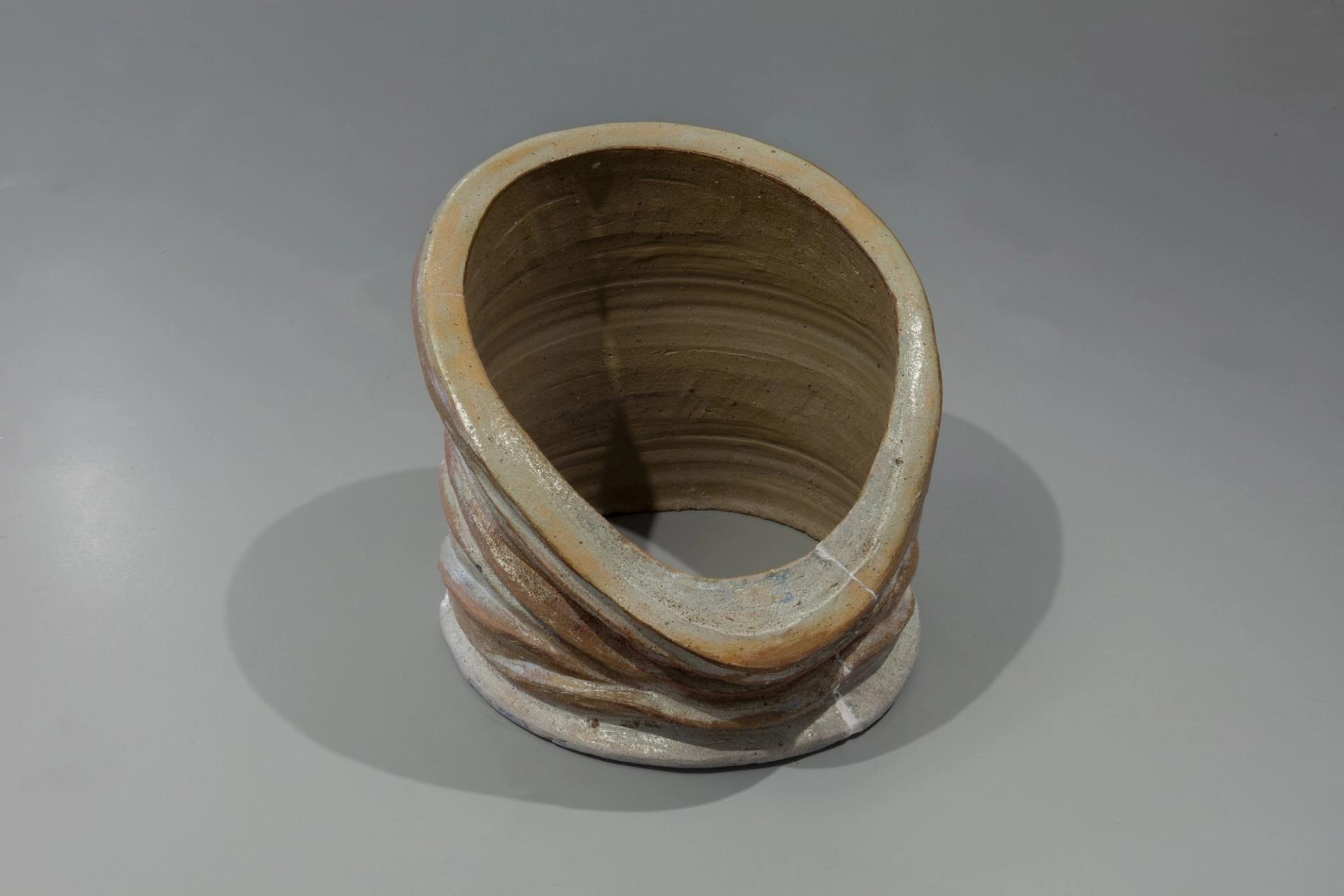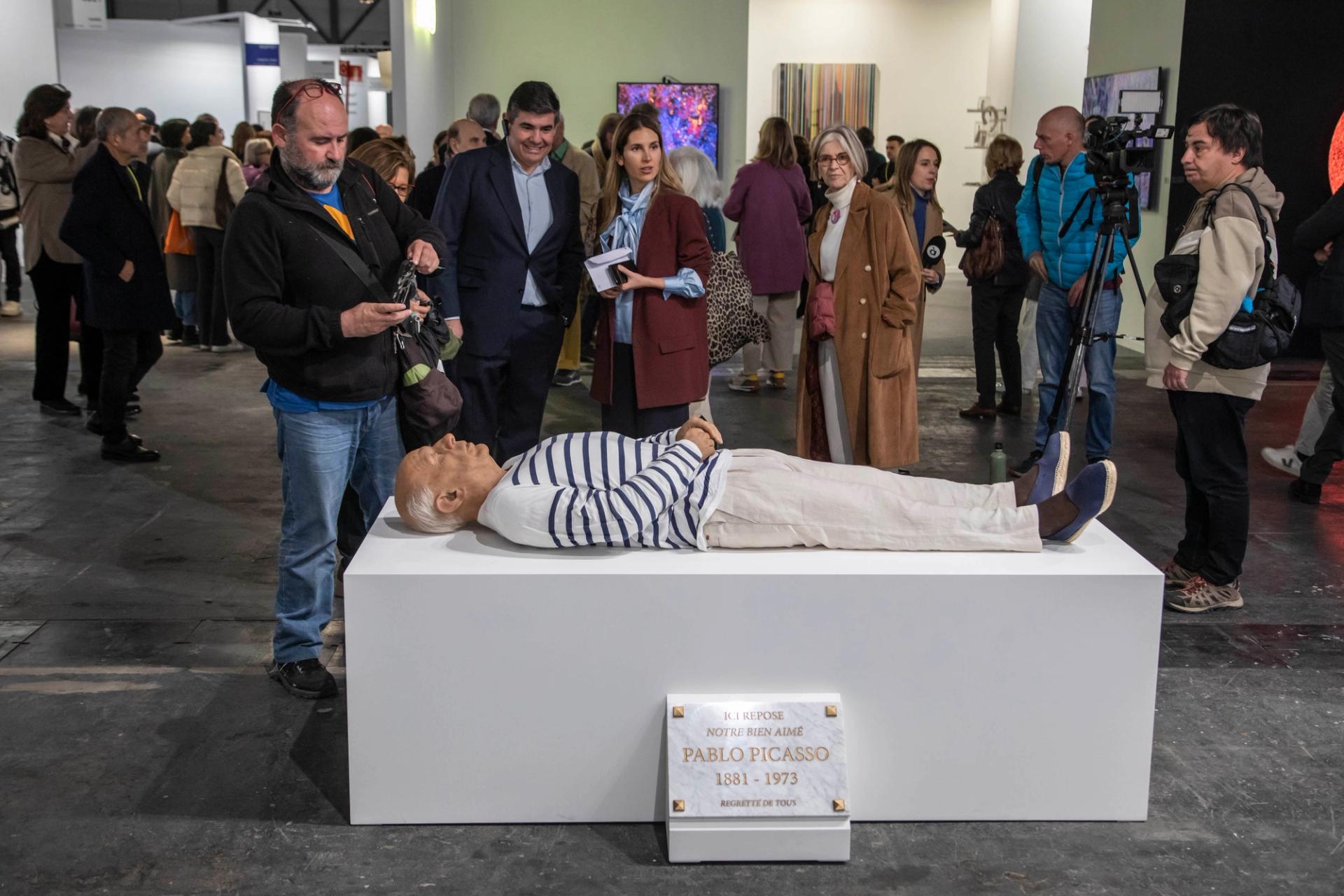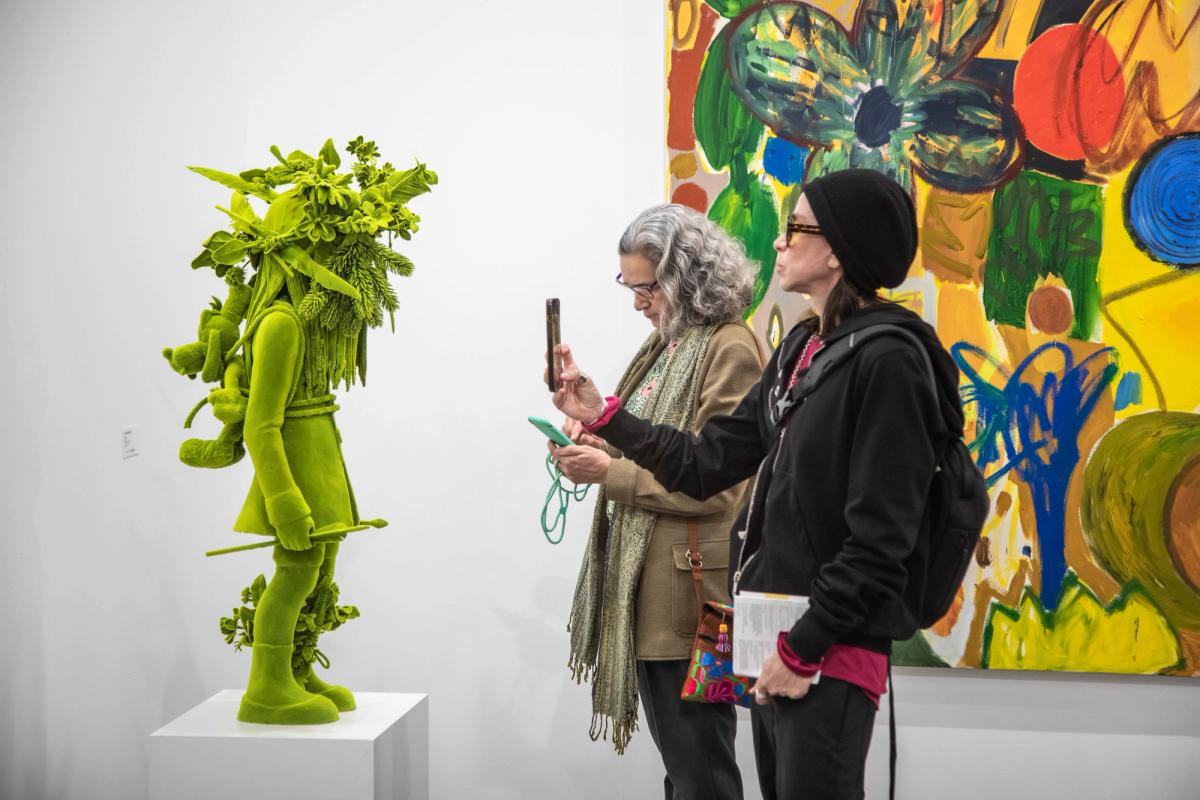“There is a real buzz and energy here this year,” said Eva Albarrán of Albarán-Bourdais gallery at the preview day of ArcoMadrid fair (until 26 February), held in the out-of-town behemoth Ifema conference centre. “And,” she added, “We have already made sales.”
She is among the 211 galleries to have come to Madrid for one of the best attended fairs in the world—the first, VIP-only day saw heaving crowds come through the doors, while the VIP programme was reportedly overwhelmed with bookings.
Albarrán’s optimism was reflected by Nicole Hackert of Contemporary Fine Arts from Berlin, who had decided to return to Spain’s leading art fair after an absence of 22 years. “There seem to be many more foreigners in the city now and we hope to connect with them as well as Spanish collectors,” she said.
Indeed the Spanish capital has seen an influx of residents: firstly from economically unstable countries such as Venezuela, Colombia, Argentina as well as Peru and Brazil. And a favourable tax regime has attracted other non-Spanish citizens, the result of which has apparently been a sharp hike in real-estate prices. However just as the fair started a controversial new “temporary” wealth tax was brought in, applicable from December, which will hit fortunes over €3m, across Madrid and Andalucia.
The fair certainly attracted notable collectors from overseas, such as Laurent Dumas, the president of French real-estate developer Emerige, due to open a private museum in Paris in 2025, the Italian patron Patrizia Sandretto Re Rebaudengo (whose eponymous foundation already has a programme in the city), and Tiqui Atencio. A group of Tate patrons also made a special trip for the fair.
Despite its size, Arco does not attract all of the top galleries—Gagosian, Pace, White Cube were absent although Zwirner and Ropac were present. This may be partly because prices at Arco tend to be concentrated under the $100,000 level. It is less fast-paced than, for example, the Basel fairs, but by the end of the first day Ropac was reporting the sale of a Baselitz at £1.5m and two sculptures by Antony Gormley at £450,000 and £400,000. David Zwirner sold Blotter Figure with Shutter III, 1999, by Juan Muñoz, to a Spanish institution for $850,000, along with other sales.
There was a big opening for the French artist Dominique Gonzalez-Foerster at the Albarrán-Bourdais gallery the day before Arco opened, and at the fair one edition of her photomontage Farmacia Distante 3, (2023, edition of two), was quickly reserved at €75,000 by a Portuguese collector.

Jumana Manna's ceramic works are on sale at Hollybush Gardens' booth
Lower down the price scale, reported sales included London’s Hollybush Gardens, in the curated “Mediterranean” Section, which placed three works by the Palestinian-born Jumana Manna with a Spanish institution— ceramic works sculpted to resemble fragments of industrial piping. Prices ranged from £5,000 to £30,000 for these works.
In the small section devoted to Latin American artists, Proyectos Ultravioleta from Guatamala City showed paper works by Jessica Karié— outlined images of monuments from the country, but torn and folded down. Prices ranged from $2,000 for each work or $25,000 for a group of 22, and six sold immediately the fair opened.

Aqui Murio Picasso (2017) by Eugenio Merino
This year marks the 50th anniversary of Picasso’s death and one of the fair's most curious work was a sculpture depicting the artist's life-size body, brought by ADN gallery. The work, Aqui Murio Picasso (2017), is by the Spaniard Eugenio Merino and comes in an edition of three that is priced at €45,000. Just across the aisle was another homage to the Málaga master—a large hut which, if disassembled, would be exactly the size of his 1937 painting Guernica, and the walls and roof were covered with images of the famed work. Max Estrella is selling the work, by Eugenio Ampudia in an edition of seven at €75,000—and one was immediately sold at the opening. “With the anniversary, we are expecting massive cultural interest in Picasso,” says the advisor Susanna Corchia.


